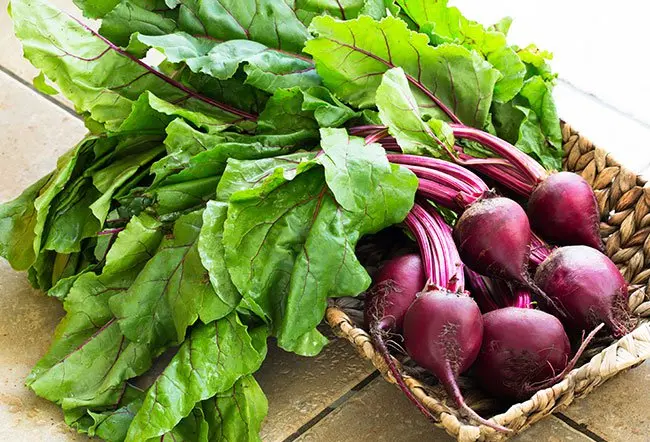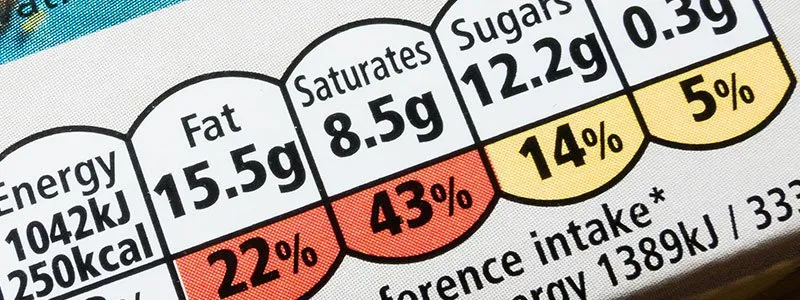What's the role of potassium in your body?

Potassium is an often overlooked nutrient. Until 2018, nutrition labels didn't have to list the potassium content. Today, there's a growing awareness of its importance. For good health, you should know about potassium sources and benefits.
Potassium belongs to several key groups:
- Electrolytes. Electrolytes are ions that conduct electricity, and they interact with your cells to do certain physiological functions.
- Minerals. Minerals are solid, naturally occurring substances, which are necessary for maintaining your health.
- Micronutrients. Micronutrients are nutrients that your body needs in a tiny amount.
Sodium and potassium work together in the body — sodium regulates the fluid outside the cells, while potassium controls the amount of fluid inside the cells.
Our ancestors ate a diet rich in potassium and low in sodium. But, today, most Americans get twice as much sodium as potassium. Many people could benefit from eating less sodium and more potassium.
How much potassium do you need?
Scientists around the world disagree on how much potassium humans need. One number that’s often cited is 4700 milligrams per day. Very few Americans reach that level.
Doctors rarely recommend potassium supplements to their patients because too much potassium is toxic to humans. It's much safer to get potassium from food.
Too much or too little potassium can cause serious health problems, especially if potassium levels go very high or very low. Certain illnesses can cause high or low potassium.
- Hypokalemia (low potassium). When potassium in the body gets too low, a condition called hypokalemia can occur. Hypokalemia is usually the result of vomiting and diarrhea or the overuse of diuretics. Abnormal heart rhythms can result. The remedy is potassium taken by mouth.
- Hyperkalemia (high potassium). If potassium is too high, hyperkalemia can happen. Kidney disease is the most common cause of high potassium. If you have low kidney function, you may have to restrict your potassium intake. Hyperkalemia can cause heart problems. Extremely high potassium levels can cause the heart to stop. Treatment for hyperkalemia depends on its cause.
Benefits of potassium
Good potassium levels can improve health, especially in those with certain conditions:
- High blood pressure. Low-sodium high-potassium diets may lower blood pressure, which reduces your chance of stroke.
- Bone loss. Too little potassium can cause loss of calcium from the bones. Increasing the potassium you get from food sources can improve bone density.
- Kidney stones. When calcium leaves the bones, it goes into the urine. It can settle in the kidneys, where it can cause painful kidney stones.
Perhaps you've heard that a lack of potassium causes muscle cramps — especially those intense leg cramps that occur at night. Scientific proof for this belief is lacking, though.
Doctors are unsure what causes most leg cramps. If you only get them occasionally, you can safely ignore them. If they happen often, talk to your doctor.
Eating more bananas or other potassium-rich food is unlikely to help.
Potassium sources in food
Your body absorbs potassium from food sources very well. It uses about 85 to 90 percent of what's available. You can get potassium from many foods and drinks, including coffee and tea. Beef and salmon are good food sources of potassium, and so are dairy products like milk and yogurt.
The very best sources are fruits and vegetables. Not only do they top the list of potassium-rich foods but they also provide other health benefits.
Dried fruits
Dried apricot is the potassium champ with about one-quarter of your daily need in one serving. Raisins and prunes are also high on the list.
Besides potassium, dried fruit offers healthy antioxidants and fiber. Dried fruit is a calorie-dense food. Don't eat too much, and check labels for added sugar.
Lentils and other legumes
Lentils are another good source of potassium with about 15 percent of your daily need per cup. Kidney beans and soybeans are excellent as well.
These foods belong to the category known as legumes. Legumes are nutritional powerhouses, containing protein, fiber, complex carbohydrates, vitamins, and minerals. They are also inexpensive — especially when you buy the dried ones.
Potatoes
If you need an excuse to dig into a delicious baked potato, here's one. It's a rich source of potassium.
You may think of potatoes as unhealthy, but that's mainly true if you fry them or add fatty condiments. Simply prepared, they have vitamin C, a lot of fiber, and even a little protein, all along with potassium.
Spinach
Spinach's reputation as a superfood is well earned. It’s an excellent source of six vitamins and six minerals, including potassium. It has anti-inflammatory qualities and is low in calories but high in fiber. Unlike some vegetables, spinach keeps most of its nutrients when cooked, especially when cooked quickly.
Bananas
Bananas have a reputation as the best source of potassium. They are a good source, but one banana provides only about 10 percent of your daily need.
Bananas are also a good source of fiber, vitamin C, vitamin B6, magnesium, and manganese. With 15 grams of natural sugar, they are not a low-calorie food. Still, unless you are on a strict diet for diabetes or weight control, feel free to enjoy an occasional banana.

QUESTION
According to the USDA, there is no difference between a “portion” and a “serving.” See AnswerAmerican Family Physician: "Nocturnal Leg Cramps."
European Food Information Council: "The Nutritional Value of Potatoes."
Harvard Health Publishing: "Is eating dried fruit healthy?" "The importance of potassium."
Harvard T.H. Chan School of Public Health: "Bananas," "Legumes and Pulses," "Potassium."
Merck Manual Consumer Version: "Hyperkalemia," "Hypokalemia."
National Institutes of Health: "Potassium: Fact Sheet for Consumers."
Nutrition Today: "What Is the Evidence Base for a Potassium Requirement?"
PennState Extension: "Potassium, an Often Forgotten Nutrient."
World's Healthiest Foods: "Spinach."
Top What Foods Are the Highest in Potassium Related Articles

ammonium chloride
Ammonium chloride is an acidifying agent administered intravenously to treat metabolic alkalosis and low chloride levels (hypochloremia). Do not take ammonium chloride if you have impaired liver or kidney function. Common side effects of ammonium chloride include metabolic acidosis, ammonia toxicity symptoms, rapid breathing (hyperventilation), EEG abnormalities, involuntary muscle contractions due to electrolyte imbalance (calcium-deficient tetany), seizure, mental confusion, drowsiness, injection site reactions, rash, low blood potassium levels (hypokalemia), high blood chloride levels (hyperchloremia), abdominal pain, nausea, and vomiting. Consult your doctor if pregnant or breastfeeding.
Why You Need Potassium and How to Get It
Potassium-rich foods like bananas, potatoes, prunes, oranges, tomatoes, lima beans, and sunflower seeds help your nerves, muscles, and bones. Potassium reduces the risk of high blood pressure and stroke. Low potassium (hypokalemia) and high potassium (hyperkalemia) can cause issues.
Potassium Foods
It turns out lots of things have more potassium than a banana! Here's a guide to the tastiest choices.
Healthy Living and Disease Prevention
The importance of a healthy lifestyle in disease prevention is widely understood and most people know that lifestyle changes and choices can be critical to good health. Learn about healthy behaviors that constitute healthy living.
High Potassium (Hyperkalemia)
Hyperkalemia is an abnormally high level of potassium in the blood. Hyperkalemia symptoms include nausea, fatigue, tingling sensations, or muscle weakness. Hyperkalemia may also cause no symptoms. Hyperkalemia treatment may include a low-potassium diet, medications, and intravenous glucose and insulin. Causes of hyperkalemia include kidney dysfunction, certain medications, adrenal gland diseases, and potassium shifts.
Is Coffee High in Potassium?
Potassium is an essential micronutrient required for cellular function. It is highly reactive in water and produces positively charged potassium ions.
Low Potassium (Hypokalemia)
Low potassium or hypokalemia is a decrease in blood potassium levels, which is caused by colon polyps, vomiting, diarrhea, medications, and laxatives. Foods in the diet are how the body absorbs potassium. Symptoms of low potassium in the blood include palpitations, muscle cramps, and muscle aches. Treatment for low potassium is low potassium through diet IV.
potassium bicarbonate
Potassium bicarbonate is a medication used as supplemental potassium to treat and prevent low blood potassium levels (hypokalemia). Common side effects of potassium bicarbonate include abdominal discomfort, nausea, vomiting, diarrhea, gas (flatulence), and hyperkalemia. Consult your doctor if pregnant or breastfeeding.
sodium bicarbonate
Sodium bicarbonate is a chemical compound made of sodium and bicarbonate used to increase the alkalinity of the body. Intravenous sodium bicarbonate is also used as an antidote for metabolic acidosis due to toxicity from many drugs. Oral sodium bicarbonate is an antacid used to temporarily relieve symptoms of acid indigestion, heartburn, and upset stomach. Common side effects of sodium bicarbonate include excessive alkalinity (metabolic alkalosis), high sodium levels in blood (hyponatremia), low potassium levels (hypokalemia), low calcium levels (hypocalcemia), cerebral hemorrhage, increased acid level in the brain tissue (intracranial acidosis), exacerbation of congestive heart failure (CHF), swelling (edema), and others. Consult your doctor if pregnant or breastfeeding.
sodium zirconium cyclosilicate
Sodium zirconium cyclosilicate is a medication used to treat excessively high blood potassium levels (hyperkalemia) in adults. Common side effects of sodium zirconium cyclosilicate include swelling from fluid retention (edema), peripheral edema, generalized edema, and abnormally low blood potassium (hypokalemia).
Veltassa (patiromer)
Veltassa is indicated for the treatment of hyperkalemia, or high levels of potassium. High levels of potassium usually are caused by kidney or adrenal gland malfunctions and may cause nausea, fatigue, weakness, and slow heartbeat. Veltassa works in the colon by binding with potassium from your food and preventing your body from absorbing it.
What Can Happen if Your Potassium Level Is Too Low?
A low blood potassium level is medically known as hypokalemia. A blood test is sufficient to confirm its diagnosis.
What Does Potassium Do for Your Body?
Your body needs potassium to help your nerves, heart, and muscles function correctly. But high potassium levels can lead to health problems.
What Drinks Are High in Potassium?
Potassium is one of the essential minerals required by your body for its smooth functioning. Like sodium and chloride, potassium is an electrolyte serving several roles. Drinks such as fruit and vegetable juice, sports drinks, and chocolate milk are high in potassium. Alcoholic drinks can also increase your potassium levels, but can cause cell damage and hamper kidney function.
Which Fruits Are High in Potassium?
Potassium is an important mineral that plays a vital role in the body. Fruits that are high in potassium include bananas, cantaloupe, oranges, avocados, grapefruit, apricots, honeydew, guava and kiwi.